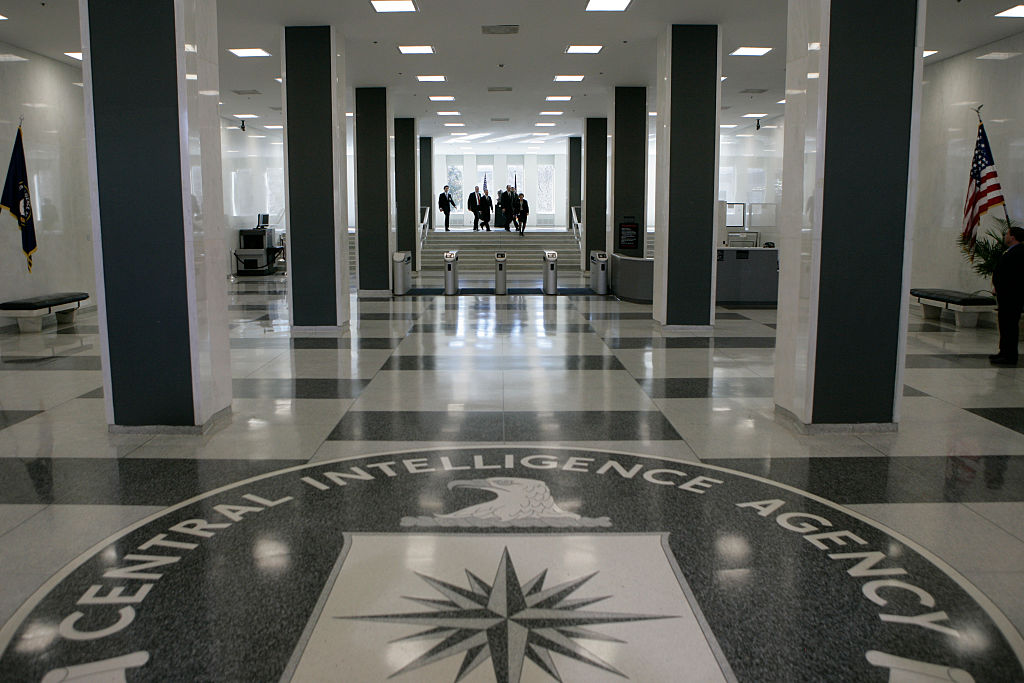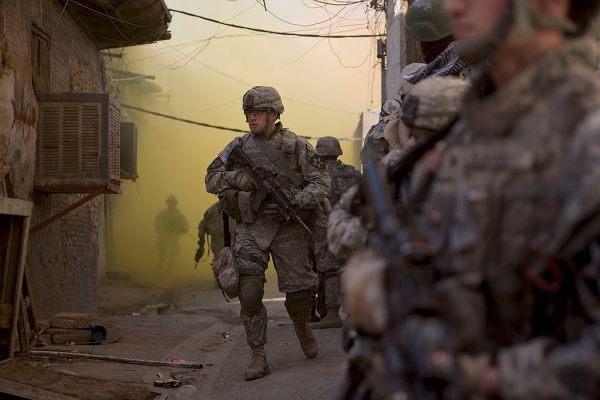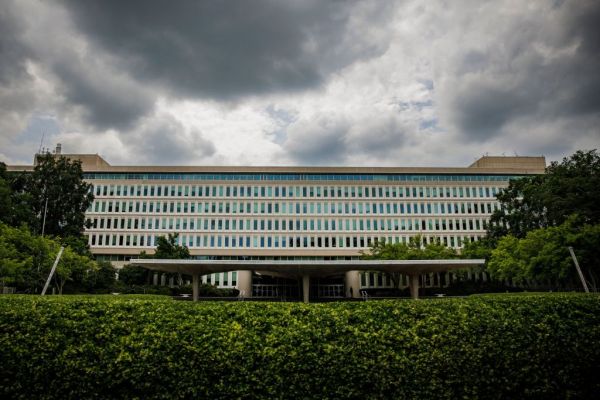Last month yet another Central Intelligence Agency officer was convicted for a workplace sexual assault on a female agency colleague, one that happened in front of more than a dozen witnesses. It followed another former officer’s conviction in a bench trial last year in a similar attack, in which a female trainee was strangled in a stairwell at CIA headquarters while resisting her colleague’s advances. This case will be retried in front of a jury in Virginia today. Last month another agency officer was sentenced to 30 years in prison for drugging and molesting dozens—perhaps hundreds—of women and filming his depraved acts. These court proceedings come on the heels of a CIA inspector general report demanded by the Senate Select Committee on Intelligence, and a House Permanent Select Committee on Intelligence investigation, on the agency’s epidemic of workplace sexual violence.
I’ve had the honor of representing several female CIA officers who bravely came forward with criminal complaints of sexual assault at the hands of agency colleagues. Their truth-telling came at a high price to their careers. The first officer to inform Congress about this crisis was soon fired for obviously pretextual reasons, and her claim of unlawful retaliation is under investigation by the CIA’s inspector general. She settled, on confidential terms, a lawsuit for Civil Rights Act and Privacy Act violations. Yet another officer in a sensitive post, who interacted regularly with the most senior CIA officials, felt compelled to resign in protest at how badly the agency mishandled her assault.
Beginning from a very low standard, and only under intense congressional pressure via reforms mandated in the bipartisan 2024 National Defense Authorization Act, has the CIA made limited forward progress regarding workplace sexual violence.
Until recently, for example, the agency as a policy threatened victims with prosecution for unauthorized disclosure of classified information, if they told law enforcement of their assailants’ CIA association or identified colleagues as witnesses to their assaults without agency permission. This was, in law and in fact, felony witness tampering: the knowing attempt to intimidate a person to delay or prevent their communication to law enforcement information relating to the possible commission of an offense such as sexual assault on federal property. In the stairwell victim’s case, the agency’s misconduct went beyond just witness tampering to obstruction of justice, in my view, when CIA lawyers unlawfully leaked her workplace communications to her assailant, who used them in an unsuccessful effort to intimidate her from testifying against him at his criminal trial.
The agency no longer helps assailants within its ranks dodge local law enforcement attempts to serve them with orders of protection. The CIA also no longer routinely threatens victims’ security clearances or assignments to discourage them from filing employment discrimination complaints or seeking needed mental health assistance. This progress is long overdue, but it’s progress.
Yet the agency still refuses victims’ requests to have their security-cleared lawyers present for meetings with CIA investigators. It also still insists on videotaping victims’ interviews with investigators—even though the only people who benefit are the accused perpetrators’ defense counsel, who use them to cross-examine victims. CIA security personnel still interrogate victims about whether they disclosed classified information in reporting sex crimes, and in one case, bizarrely polygraphed a female officer who’d been sexually assaulted about whether she’d ever been raped, which is irrelevant to her suitability for holding a security clearance. In one recent case the agency unit responsible for taking sexual assault complaints even filed a personnel action against a victim whom they considered to be too pointed in the manner of making her complaint.
The CIA is forbidden from wielding general police powers, or interfering with domestic law enforcement, including by state and local authorities, and most CIA personnel lack relevant criminal investigative experience. Yet the agency still improperly allows itself to decide whether to notify law enforcement of sex crimes complaints involving its officers. In fact, until recently, the agency refused to report to law enforcement what it considered to be mere misdemeanors.
Whether misconduct is a crime, and if so whether it’s a felony or a misdemeanor, are legal decisions properly made by prosecutors’ offices and grand juries. It’s not clear why the U.S. Attorney’s Office for the Eastern District of Virginia, which is commendably aggressive in prosecuting national security cases involving counterintelligence, export controls and terrorism, appears to habitually defer to the agency regarding this core law enforcement responsibility when it comes to sex crimes. Fortunately for CIA women, good local police and prosecutors in northern Virginia are now rising to the task; unfortunately, agency policies continue—unnecessarily and perhaps deliberately—to make these investigations and prosecutions more difficult.
Meanwhile, male CIA officers under active investigation by law enforcement for felony sex crimes are permitted to remain in operational postings abroad. This is despite glaring counterintelligence threats posed by their criminal liability exposure—which could lead them to defect to an adversary’s intelligence service rather than face decades in prison in the U.S.—and the obvious physical safety dangers such predators pose to female colleagues, liaison partners, sources, and host country civilians.
I was proud to serve as a CIA case officer for six years, one of many young professionals who set aside their civilian careers after 9/11. In my view, albeit now from the outside looking in, and as a lawyer in private practice once again, the agency still doesn’t “get it” on this important issue.
Crucially, the agency still claims that most information about sex crimes is secret, which plainly it is not. The executive order authorizing the entire classification system specifically forbids declaring anything secret because it is criminal, or embarrassing to a government agency. Remarkably, the CIA insists that its inspector general’s 648-page report on sexual harassment and assault is somehow classified. When the agency is confronted with hard questions about workplace sexual violence, its bureaucrats respond weakly—the CIA “takes this very seriously” and “acts swiftly” to “ensure a safe working environment”—instead of providing action plans.
One of my clients was sexually assaulted by her supervisor, whose counsel admitted was blackout drunk in the office in the afternoon, in a conference room at a clandestine agency facility. Her victim impact statement, delivered in court in September, described experiencing “a Byzantine and ultimately useless process” within the CIA after her assault. Her assailant was allowed to go through a months-long transition program, retire, and keep his security clearances—despite misconduct corroborated by witnesses that later resulted in his conviction for a violent crime. Another officer convicted of a workplace assault on a female colleague was similarly permitted to keep his clearances and, relatedly, a Navy Reserve intelligence billet.
Despite pressure from Congress, the press, and most of the agency’s own workforce, CIA management under Director William Burns still simply can’t—or won’t—ensure a workplace environment for female officers that is free from violent sexual predators.
If any local law enforcement jurisdiction in America had a similarly poor record of mistreating female sex crime complainants, while failing to punish male perpetrators, the Department of Justice’s Civil Rights Division would investigate its police department and district attorney’s office. I’m biased as a native New Yorker, but I think the New York Police Department is our nation’s finest. Yet even NYPD’s famous Special Victims Division recently fell under scrutiny by the DOJ Civil Rights Division and local U.S. attorneys regarding whether the NYPD engaged in gender-biased policing. Often, when DOJ’s Civil Rights Division finds that a police department has engaged in a pattern and practice of misconduct, it appoints a federal monitor of that law enforcement agency for a period of time. Again using the NYPD as an example, it operated for years under a federal monitorship regarding alleged racial profiling in its “stop, question, and frisk” practices.
The same high standards that rightly apply to any police department in America ought to apply to the CIA, too. The situation warrants a Justice Department civil rights investigation of the agency’s response to sex crimes, and depending on the results of that probe, the possible appointment of an independent federal monitor. That monitor—likely a former prosecutor, and ideally a woman—would report to DOJ and perhaps even, pursuant to equal employment opportunity litigation, a federal judge. This monitor’s reports should be shared with CIA’s congressional oversight committees and the press and the public.
In 2024, it’s impossible for the United States to conduct espionage well without talented women. About 3 in 5 American university graduates now are female, a general trend that’s even stronger at the elite colleges and graduate programs from which the CIA typically seeks recruits. Beyond that, some human intelligence sources are more easily recruited or handled by female case officers, in cultural circumstances in which a particular cover for status or action simply fits better on a woman. Yet the persistence of sex crimes within the agency harms the recruitment, morale, and retention of good female officers. As my client stated in court, “When he shoved his hand up my skirt, I felt myself losing confidence, getting ‘smaller’, feeling like I had no voice.” She is sadly not alone in her feelings.
When I was in the Army, a wizened old general observed to a group of us junior officers preparing to undergo an inspection, “Boys, a cat can’t skin itself.” He was right. The CIA clearly cannot solve this problem internally, and will not solve it on its own. The agency needs outside expert help to fix its sexual violence problem. CIA women, patriots performing often hazardous duties for the United States, deserve no less.









Please note that we at The Dispatch hold ourselves, our work, and our commenters to a higher standard than other places on the internet. We welcome comments that foster genuine debate or discussion—including comments critical of us or our work—but responses that include ad hominem attacks on fellow Dispatch members or are intended to stoke fear and anger may be moderated.
With your membership, you only have the ability to comment on The Morning Dispatch articles. Consider upgrading to join the conversation everywhere.